Estimated reading time: 5 minutes
Are you wondering if you should fertilise your fruit trees in spring?
To understand if it’s a good idea (and what to use), let us tell you how we handle this issue on the farm. But first, you need to understand where fruit trees get their nutrition.
When your fruit trees start to flower and then grow leaves in early spring, they’re using nutrients that were stored away in their buds and bark last autumn.
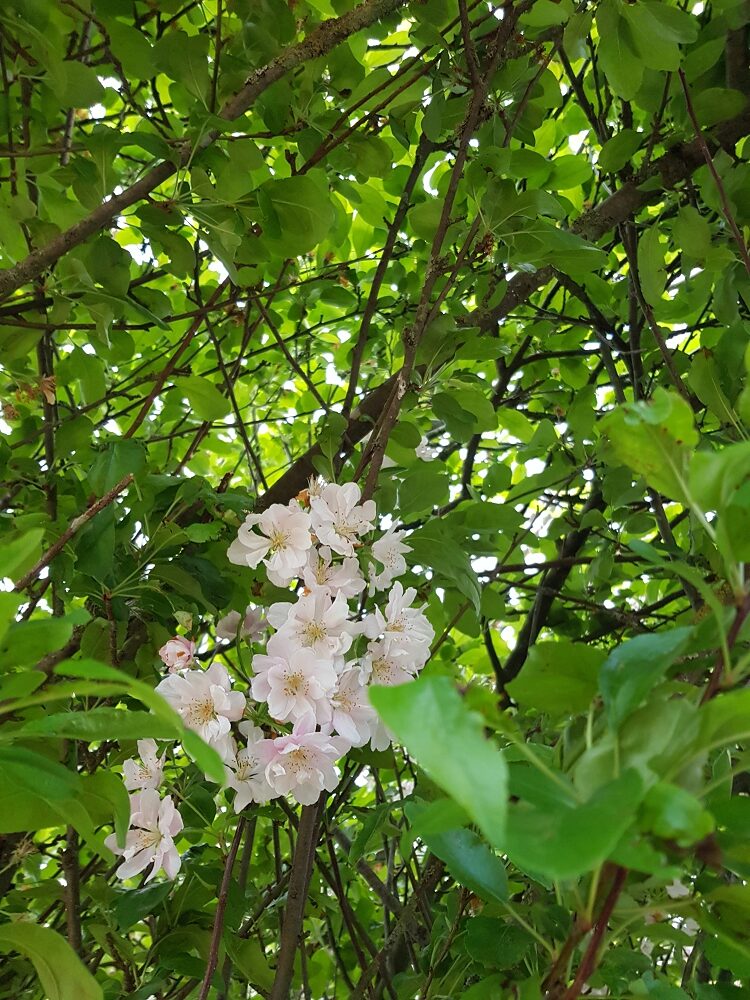
But it’s a pretty limited supply, and as soon as their roots are active, they’ll also start to draw nutrients up through their roots from the soil.
This usually starts happening well before the flowers have turned into fruit.
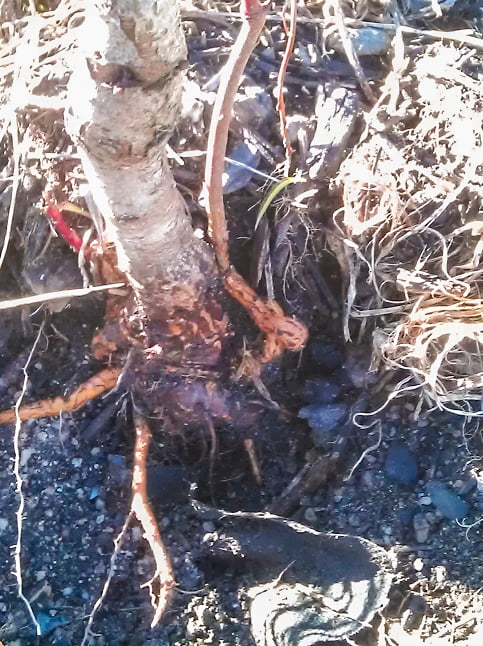
Do you need to give fertiliser to your trees?
So, do you need to add fertiliser to the soil to make sure your fruit trees have enough nutrition available?
Well, no … but yes.
Sorry, confused? When we first delved into the world of growing organically, we learned about something called the “natural fertility system”.
It changed the way we thought about (and used) fertilisers for ever.
The natural fertility system evolved millions of years ago without any human intervention. It works with nature rather than against it.
Most importantly, it doesn’t rely on adding fertilisers to your soil.
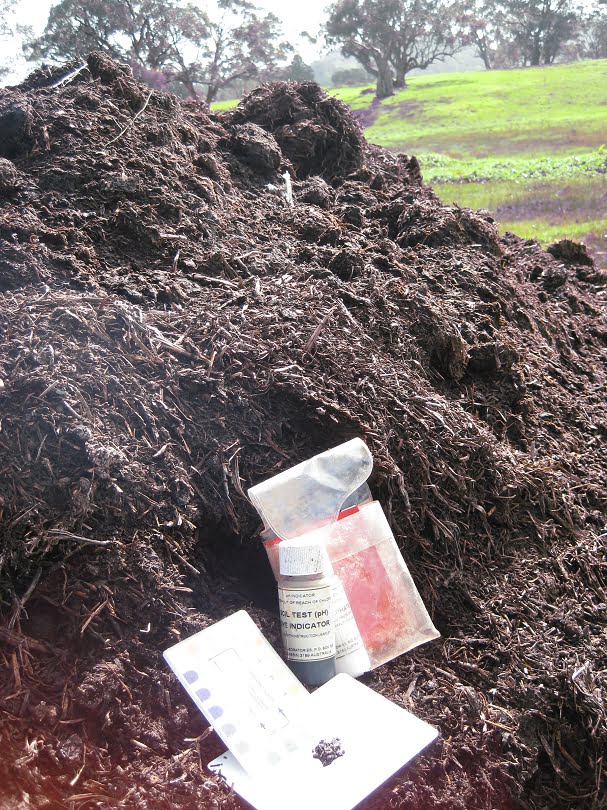
It turns out that the addition of man-made, artificial fertilisers (which are soluble nutrients) actually works against this naturally evolved system.
Fertilisers can seem to give good results, like better growth. In the beginning, we found it hard to believe that they might be causing damage to the soil.
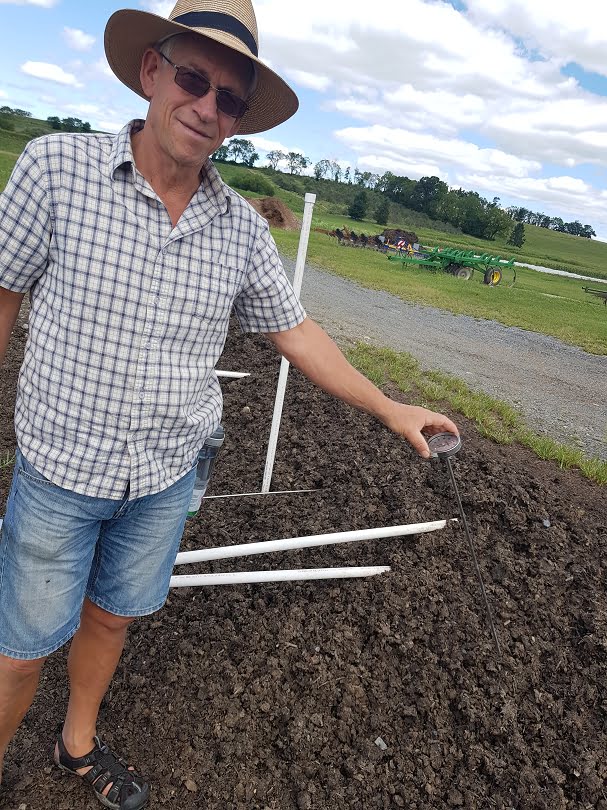
Then we came to understand that the damage occurs at a level you can’t see.
Artificial fertilisers can actually kill or damage soil microbes, rather than supporting them. Fertilisers upset the delicate balance in the soil and can quickly destroy the natural fertility system.
And guess what? That means you become dependent on the fertilisers for nutrition for your crops.
This explains how the great promise of the “green revolution” (when nitrogen fertilisers started to be mass produced) turned out to be a trap for farmers and gardeners all over the world.
The ensuing collapse of the natural fertility system is one of the root causes behind the devastation we’re now seeing in agricultural systems and ecosystems globally.
How to fertilise your fruit trees without doing damage
We were relieved to learn that staying away from fertilisers (and other chemicals) doesn’t mean you can’t (or shouldn’t) add anything to the soil.
We just had to go through a bit of a mindset change. Rather than using fertilisers to feed the trees, we build and feed the soil.
To keep your fruit trees happy and healthy, your job is to make sure that all the required nutrients need are present in the soil.
The next step is to provide the right conditions to favour the populations of healthy soil microbes. This helps them do what they’re good at, which is converting nutrients into a plant-available form (and eating each other!).
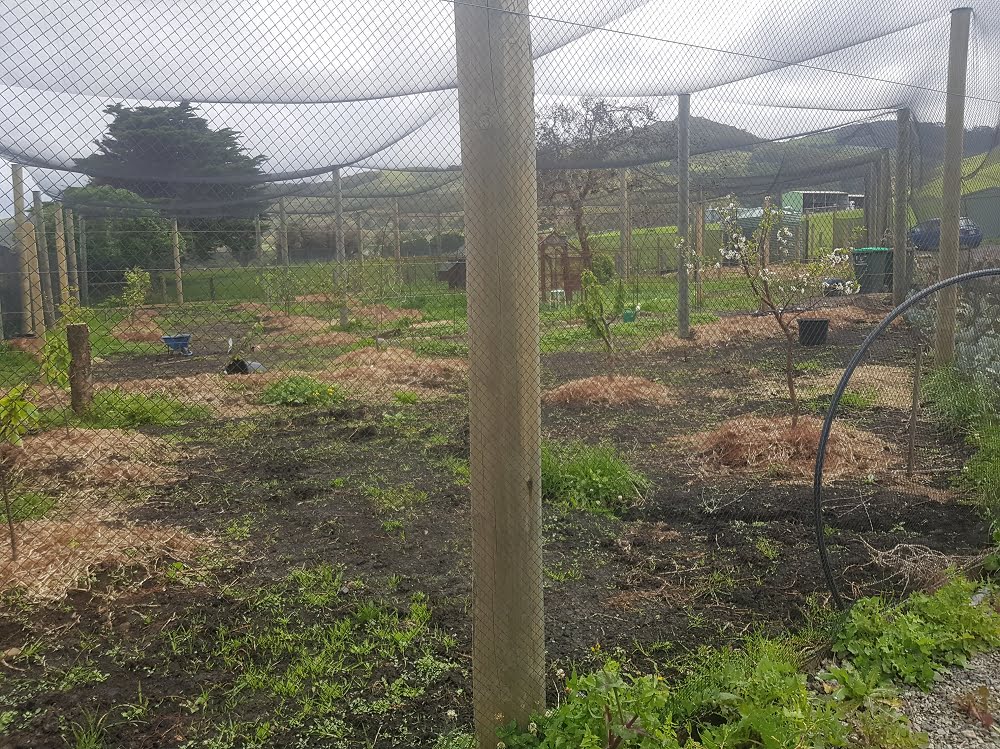
So what can you use for organic fertiliser?
At our place, we mainly use compost, wood chips, and compost tea.
You can use basically any organic matter, and from a variety of sources if possible. This might include:
- compost
- worm castings
- wood ash
- rock dust
- wood chips
- straw
- Charlie Carp (find out more about this product here).
Basically, if something used to be alive, it’s organic matter! Creating healthy soil is an endlessly fascinating and rewarding pursuit for any home gardener.
Freeing yourself from the tyranny of buying expensive fertilisers off the shelf is hugely rewarding for your soil, your spirit, and your wallet!
Related Articles
3 simple ways to improve your soil
Here are 3 simple ways to kickstart the health of your soil to help you grow fruit that is full of vitamins and minerals.
Fruit tree leaves: bonus or problem?
Should you let the leaves from your fruit tree stay on the ground in autumn, or are you just asking for trouble? We’ll help you decide.
Should you spray your fruit trees in autumn?
Spraying fruit trees should always be kept to a minimum to protect soil health, but sometimes a spray in autumn is the right thing to do.
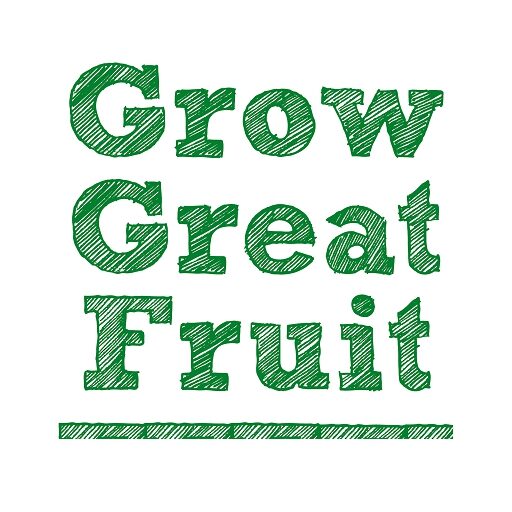
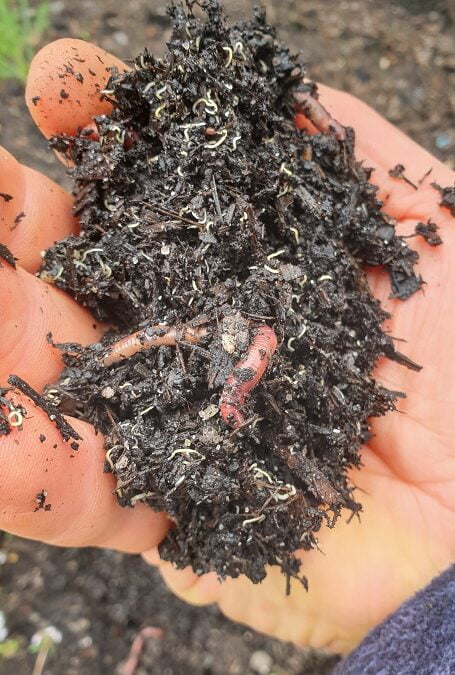
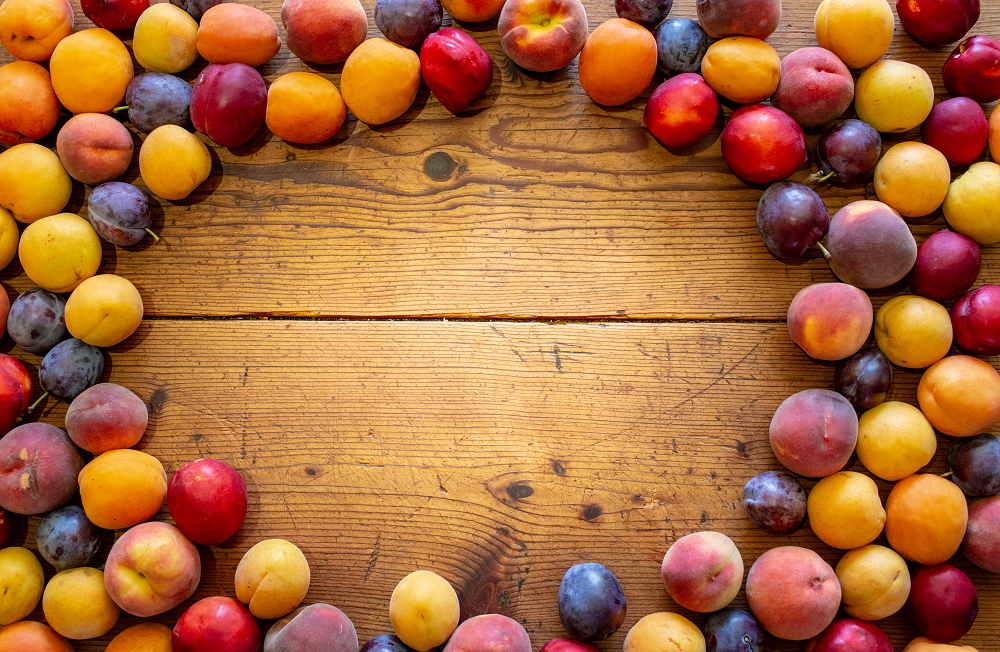

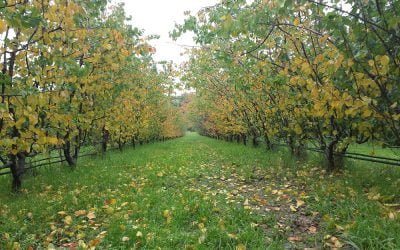
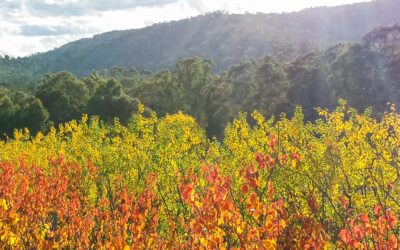
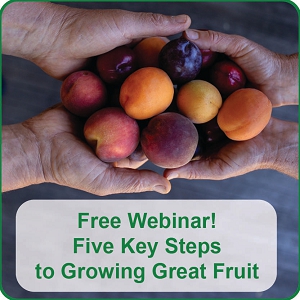
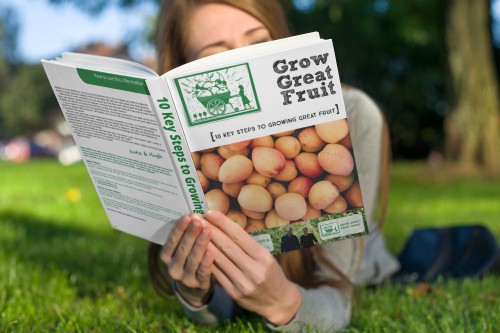
Love all your hints. I try to keep it all natural. Is Seasol useful or is that also an interference rather than an assistance?? It’s the only additive I have ever used, and probably only a couple of times a year.
Hi Maureen, no Seasol is great – it’s what we call a “soil conditioner” rather than a fertiliser, because it’s acting as microbe food, rather than artificial fertiliser. Once a month during spring and summer isn’t too much, but it’s relatively expensive to buy of course, so we also favour free sources of organic matter if you can find them!
Hello,
Thanks for your post! I was recommended by a local nursery to use Organix Xtra by Amgrow. I wondered if this is an artificial fertilise though. Any thoughts? Link below for the product.
http://www.amgrow.com.au/product/organic-xtra/
Thanks!
Hi Catherine, we don’t recommend or endorse any particular products or companies as we’re much more in favour of low cost options (like having worm farms, including animals in the garden, making compost and sourcing the actual ingredients in this kind of product), but it is a certified organic product and should be fine to use.
Hi Katie,
I noticed you don’t include manure on your list – is that because it has too much nitrogen? I use a lot of chicken manure pellets but try to supplement it with compost etc.
Thank you!
Hi Marian, no manure is fine, but it does need to be aged first, and used in moderation – because yes, it has a lot of nitrogen in it and you don’t want to put on too much at once. The rule of thumb is the larger the animal, the more and fresher you can use.
Hi, This is such a valuable site! I have a dwarf pear in the ground, that has set lots of fruit this year and looks very healthy. I have a bucket of muddy worm castings from the bottom of my worm farm, and wonder if its too rich to spread around the base of the tree? Should i roughen up the soil around the base an mix it in and then replace the mulch?
Hi Liz, worm castings are a great addition, and there’s no risk of overdoing it – use as much as you like! It would be useful to apply them under any mulch you have, but no need to roughen up the soil.
My orchard grows on a floor of kikuyu.. and chickens roam the orchard. I use a Diggers Club fruit tree feed annually ..
I’ve had great fruit but awful brown rot.
I know kikuyu is not ideal but can’t kill it and not will mulch (pea straw or lucerne) last because of the hens.
Should I be concerned?
Hi Robbie, no – please don’t be concerned! Kikuyu and chickens sound perfect in your situation – we’re big believers of going with what’s easy. The brown rot is a separate problem, and is quite manageable once you understand how it works and how to treat it – have you done our organic pest control webinar? (it’s free) – here’s the link to sign up for it: https://growgreatfruit.com/pest-and-disease-webinar/
What can I use as a trellis for my dragon fruit that is healthy, strong and lasting and will not harm the plants or environment? Timber poles will rot! Maybe steel poles? Please advise me.
Hi Moira, you can use treated poles that don’t rot, but we don’t recommend them because they’re banned in organic orchards. Failing that, a metal trellis is the best option – we’ve seen some simple trellis systems made out of reo mesh
I can’t have straw mulch under my trees because the chickens scratch it away and so sometimes wonder if I’d be better off without the chickens. I love mulching trees and have found that it makes a big difference.
When it comes to putting worm castings and compost under the tress, I don’t have a lot and would like to know what the recommended amount is. Also under the trees is growing a variety of plants like various grasses, clover, dandelions , and many other weeds. I wonder if I apply some compost and worm castings on top of these weeds which are mowed and kept short, do the roots of the fruit tree get fertilized or the weeds? I really wonder if the fertilizer get past the weeds!